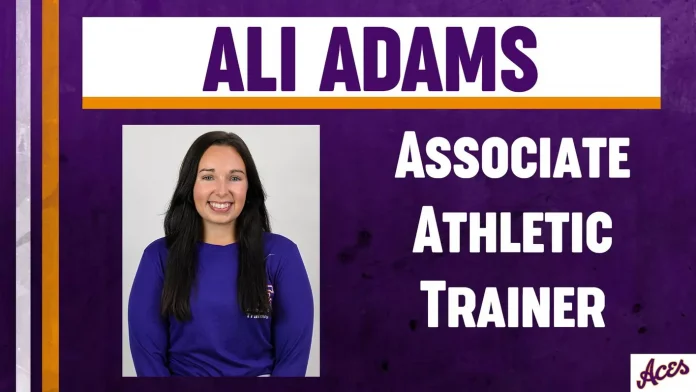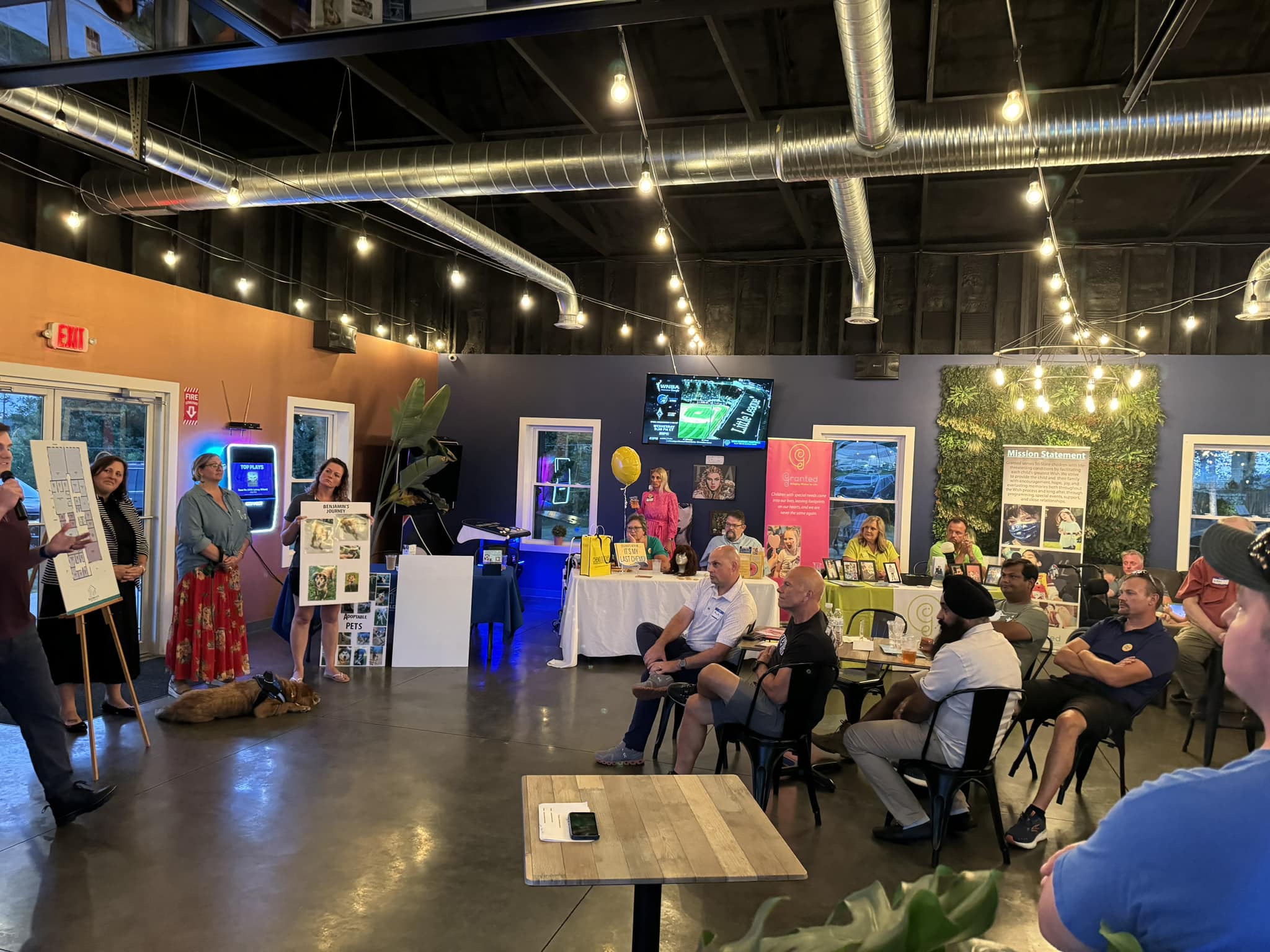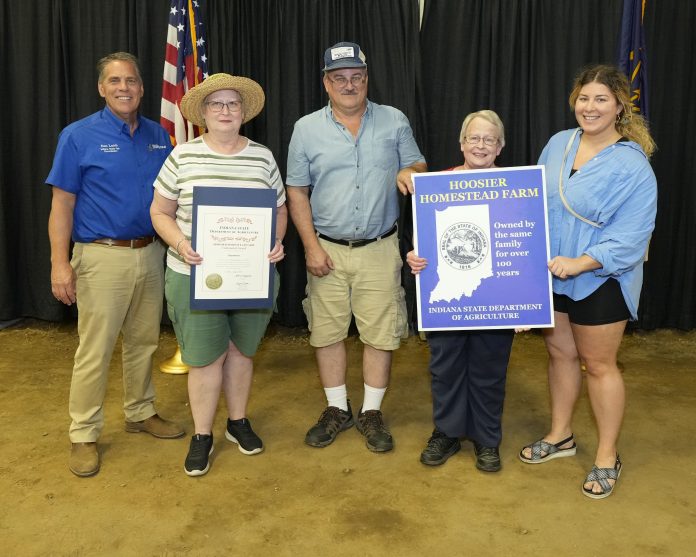UNIVERSITY OF EVANSVILLE, named Coordinating Partner for Toyota’s Driving Possibilities Initiative in Indiana
BY Noah Alatza-UE
AUGUST 24, 2024
EVANSVILLE, IND. (08/23/2024) The University of Evansville (UE), Indiana’s only Ashoka Changemaker Campus, has announced a new partnership with Toyota USA Foundation, Toyota Indiana, North Gibson School Corporation, and the Evansville Vanderburgh School Corporation to become the Coordinating Partner of the Indiana Driving Possibilities initiative. The initiative includes a grant totaling approximately $2 million.
A global leader in automotive innovation, Toyota announced Driving Possibilities in Indiana in August 2023 to catalyze systemic change within communities and inspire tomorrow’s STEM leaders. In searching for a Coordinating Partner, UE’s commitment to innovation and community engagement, led by its Center for Innovation & Change (CIC), aligned seamlessly with Toyota’s vision for Driving Possibilities.
Toyota USA Foundation then led a year-long co-design process with the CIC to imagine what its role could be in supporting the existing work at NGSC and EVSC. Initial investments aimed at removing barriers to learning were directed at early childhood education, teacher professional development, student mental health and well-being, and initiatives to address chronic student absenteeism. Among many impactful improvements within the last year, Driving Possibilities has funded a new Pre-K learning center and interactive STEM-based playground at Princeton Community Primary School, as well as experiential learning opportunities for students in grades K-12. At Lodge Community School, Driving Possibilities has supported the hiring of a bilingual case manager, provided enhanced teacher professional development, and funded a STEM learning lab.
As a Changemaker Campus, UE has distinguished itself through its innovative approach to education and its dedication to creating positive change within the community. Serving as home to the Evansville Promise Neighborhood, UE has demonstrated its commitment to supporting and uplifting the local community through various initiatives. It is now the only college in the world to be both a Changemaker Campus and host to a Promise Neighborhood.
“Today marks a monumental step forward in our ongoing partnership with Toyota, one that has consistently demonstrated the transformative power of collaboration,” said Christopher M. Pietruszkiewicz, President of the University of Evansville. “The University of Evansville is proud to continue our shared commitment to creating lasting, positive change in our community. This award is more than just an investment in our university; it’s an investment in the future of our region’s students and educators, underscoring the profound impact that can be achieved when universities, corporate allies, and communities unite towards a common goal.”
In 2022, the Toyota USA Foundation announced Driving Possibilities, a unique initiative that brings together educators, local and national nonprofits, industry, and communities to prepare youth for the careers of tomorrow. Driving Possibilities is designed to invest in systemic change within communities, focusing on areas such as education, mobility, and sustainability. By partnering with the University’s Center for Innovation & Change, Toyota can leverage its proven ability to drive systemic change, and through its leadership of the Evansville Promise Neighborhood, blend and braid resources for wrap-around care in this region.
“Our partnership with UE is a natural one – we both believe in impacting our community for the better, and doing so in innovative ways that are designed by those we serve,” said Tim Hollander, President of Toyota Indiana. “We couldn’t be more excited to see how UE can lend its unique vision for higher education to supporting our K-12 and industry partners in Driving Possibilities.”
UE’s role will be a collaboration between the CIC and the School of Education (SoE). The CIC will lead the initiative through a recently hired Program Manager, Susan Nyberg. Nyberg is a 1991 UE graduate and will manage the overall initiative, get teachers and school staff trained in design thinking, and help build a culture of innovation throughout the Driving Possibilities Indiana partners.
The School of Education will house a brand-new Indiana Next Generation Manufacturing Competitiveness Center (IN-MaC) Design and Innovation Training Studio in partnership with Purdue University and STEM Education Works. The studio will become a hub for training educators on robotics, coding, engineering and science learning modules. The studio will also provide a variety of opportunities for schools, educators, and students to discover new ways to explore design thinking, problem solving, technology, and creative skill sets in order to get kids excited about STEM learning and careers.
The IN-MaC Design and Innovation Training Studio will be managed by a recently hired STEM Coordinator, Adison Young. Adison is a 2020 UE graduate and has taught students in grades K-12 and has a passion for creating equitable access to STEM education and resources for all students and teachers.
For more information about the University of Evansville and Toyota’s Driving Possibilities Initiative, please visit evansville.edu/driving-possibilities and ToyotaEffect.com respectively.
About Toyota
Toyota (NYSE:TM) has been a part of the cultural fabric in the U.S. for more than 65 years, and is committed to advancing sustainable, next-generation mobility through our Toyota and Lexus brands, plus our nearly 1,500 dealerships.
Toyota directly employs more than 49,000 people in the U.S. who have contributed to the design, engineering, and assembly of more than 34 million cars and trucks at our nine manufacturing plants. By 2025, Toyota’s 10th plant in North Carolina will begin to manufacture automotive batteries for electrified vehicles. With more electrified vehicles on the road than any other automaker, Toyota currently offers 30 electrified options.
Through its Driving Possibilities initiative, the Toyota USA Foundation has committed to creating innovative educational programs within, and in partnership with, historically underserved communities near the company’s U.S. operating sites.
For more information about Toyota, visit www.ToyotaNewsroom.com.
About University of Evansville
The University of Evansville is a private, comprehensive university located in the southwestern region of Indiana. Established in 1854, UE is recognized across the globe for its rich tradition of innovative, academic excellence and vibrant campus community of changemakers.
Home of the Purple Aces, UE offers over 75 majors, 17 Division I sports, and a unique study abroad experience at Harlaxton, the University’s very own Victorian manor located in the countryside of England. For more information, please visit evansville.edu.













